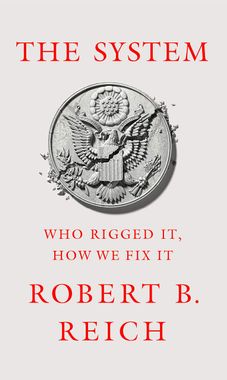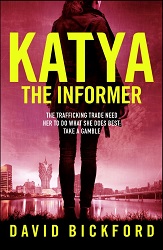You have no items in your cart. Want to get some nice things?
Go shopping
The 2020 United States presidential election is over. While some are eager to get back to brunch, a few of us cling onto the same anxieties that have kept us awake at night for the last decade or more. Donald Trump was the symptom, not the cause, of a wider problem that we must contend with. The gap between rich and poor is widening. US wages have stagnated since the 1970s. The lifestyles of the elite, sold to us on television, are looking increasingly out of reach, and with it the illusion that we are all temporarily embarrassed billionaires floats away. In order to live in the Palace, one must have been born in it, and the cards are deliberately stacked that way – though it definitely is a house of cards.
So writes Robert Reich in The System: Who Rigged It, How We Fix It, his latest in a long line of political commentaries. While there are those who have only recently woken up to this landscape, Reich has been surveying its topology for years, and why not; his experience within the corridors of power as US Secretary of Labour certainly qualifies him as a land-surveyor of this terrain. Reich has always fought and written against systemic injustice, as his support for same-sex marriage, a higher minimum wage, and universal basic income can attest. In The System, he once again applies himself to mapping out the lay of the land and charting the features along the way.
Starting from an angry phone call from JPMorgan Chase Chairman and CEO Jamie Dimon, Reich builds a response. The book is a reply to Dimon and draws in other figures who have kicked the ladder away from the rest of us and profited by doing so. He describes the nature of the beast through its effects: neglect of US workers and their communities in favour of company policies that promote shareholder value. Again and again, the stakeholders are thrust aside to further gild the lives of the shareholders. All Americans are stakeholders in the American economy, so their having no say in American policy presents an obvious concern. Through discussions on Reaganomics, corporate raiders, and the Glass-Steagall repeal, we are led down the road to the problems we face today.
This culminates in the 2008 financial crisis, a product of Wall Street greed. The failure of governments and the firms themselves to rein in their behaviour led to the fallout looming over Main Street and its angry citizens. Not only that, but the Palace has been rebuilt twice as high, with a broad moat and zealous guards. Citigroup and other firms are, as always, “too big to fail,” their hoards precluding many politicians from legislating against them. Herein lies the core of The System: politics and economics are inseparable. With billionaires incentivized to protect their wealth, they have motive to intrude into policy, negotiating tax cuts and the like through political donations and shaping a platform that displaces the voice of the 99%. We are sliding into the dreaded oligarchy that Jack London warned us about in his dystopian novel The Iron Heel.
But what’s new? We’ve heard this all before. Reich’s detailed attacks on crony capitalism and socialism for the rich have been the subject for Naomi Klein, Thomas Piketty, and dozens of other economists since before the turn of the millennium. In delineating the causes of equality, Reich is not breaking new ground. We’re upset, we know that. Millennials have lived through 9/11, a handful of economic crises, and now a global pandemic. We’re aware that we’re being shafted, and many – think QAnon conspirators, Trump, the Proud Boys – misdirect this anger against the system that perpetuates their struggle as they chase the superficial rather than the material. Their fury is directed towards immigrants, those at the bottom of the ladder, and away from the politicians, corporations, and lawmakers who are truly responsible for these issues. Widening inequalities only breed further resentment.
The failure to address wealth inequality and the way this inequality pervades politics has led to extremism; Reich directly roots these sentiments in the 2008 financial crisis and the events leading up to it. The Republicans transferred bargaining power from unions and traditional labour to shareholders and CEOs, who have also seen a transfer of the dividends of such labour – thus increasing profits for those at the tip of the pyramid. Reich describes this manoeuvre as well as the failure of the Democrats to protect unionized labour in favour of lobbyist funding. Both the left and the right have been radicalized, and the political centre has not held. The System is a portrait of liberalism eating itself: “Liberty produces wealth, and wealth destroys liberty,” as Reich quotes Henry Demarest Lloyd. But we’ve known this for some time. Writing about these problems twelve years later is low hanging fruit. Instead, let us focus on storming the Palace.
The target audience for this book is not wealthy CEOs; it’s the rest of us who already know that something is wrong. Writing a moral appeal to those benefitting from systemic inequality and asking them to reduce it is historically not the most successful approach. Reich lists off enough class-conscious corporate bad behaviour, enough cognitive dissonance in the public statements of the Business Roundtable, to make any reader’s blood boil, but does he really expect these board members to reform themselves? In recounting Sherman’s Anti-Trust Act and the breakup of the Gilded Age monopolies at the beginning of the 20th century, he quotes Woodrow Wilson to the effect that one cannot expect large companies to curtail their own behaviour because that would be against their profit-making motives. Yet through a letter to Dimon that the CEO probably won’t read, Reich proposes that CEOs behave well in spite of their ignorance and wraps up with a vague threat that men like him will be first against the wall if and when the winds change.
The moral appeal in The System is not the only solution Reich proposes. You need to read between the lines and look into Reich’s background to understand the extent of his proposal. Reich is a progressive Democrat who backed Bernie Sanders in the 2020 election cycle before Sanders dropped out of the race. He advocates for a mass political movement of workers, green and forward-looking, socialist in all but a name. The dirty s-word doesn’t rear its head within The System, but we can intuit the message.
We are at a crossroads, and Reich directs us down a route that would shake the foundations of democracy in the West. The remedies are pragmatic – we must halt the creation of billionaires by removing the state apparatus propping them up. The hoard is dangerous and erodes politics, and the hundreds of millions raked in by the likes of Bezos and Dimon cannot be justified as motivation for their entrepreneurship. They simply do not need the money. If we prevent them from amassing it, we break the cycle and erode their dangerous influence.
The System is a call to us, the readers, to take action. We’ve already seen the events of the Trump presidency radicalize a generation, but what can we do with this energy? Most of the readers will belong to what Reich terms the Palace Guard (elsewhere, the petite bourgeoisie, another term which might be distasteful): young, liberally minded people who disapprove of the consequences of the system, its inherent and systemic racism and sexism, for example, but have little interest in promoting effective reform and are content with only a form of tokenism that sees more women and people of colour as corporate CEOs. Educated in the ivory towers, they are surprised when their bubble does little to inform them of the conditions outside of it – hence the shock when the UK voted for Brexit or when the US elected Trump to his first and, thankfully, so far only term. We need progressive change. The climate is the deadline. The onus is on us to reform from within or else, like Jamie Dimon and the Business Roundtable, we will be caught unawares by the winds of change.
The System: Who Rigged It, How We Fix It
By Robert Reich
224 pages. Picador

About George Aitch
George is writer from Blackheath. He has written for The Guardian, Litro and The British Journal of Psychiatry. You may find his work in print and online in places such as Storgy, Bunbury Magazine and The Crazy Oik among others. His essay ‘What Do You Do When It All Goes Wrong’ was recently shortlisted by Ascona.




